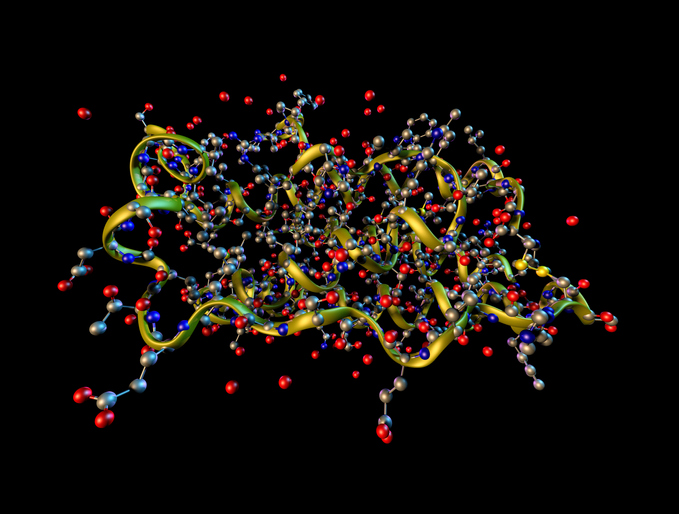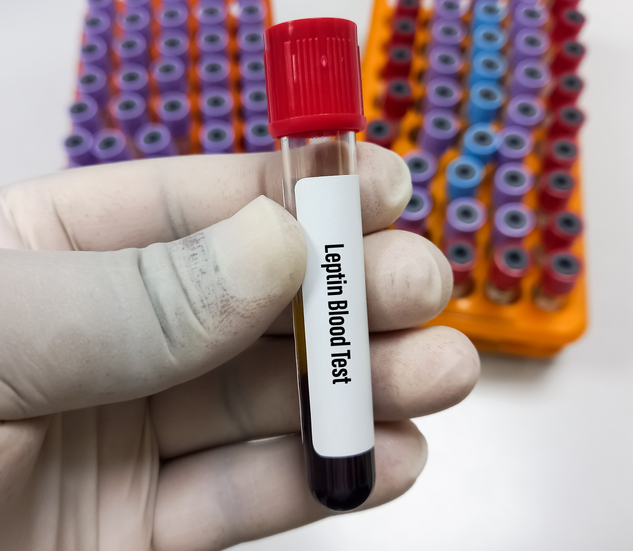
What Is Leptin And Why Does It Matter For Fat Loss?


What Is Leptin And Why Does It Matter For Fat Loss?
Leptin, a hormone produced by your fat cells, is a major one. It helps your body maintain weight at your weight setpoint and settling point.
Leptin explains why factors such as sleep, inflammation, toxic exposure, and insulin resistance can make it very difficult to lose fat and keep it off. Sometimes people can also develop leptin resistance, so the body is less responsive to the hormone signal, even if leptin is high.

What Is Leptin? A Deep Dive Of The Hormone
Leptin is a hormone responsible for controlling your hunger and your feeling of fullness. The more leptin you have in your bloodstream, the less hungry you should be. As leptin suppresses your appetite and lets your brain know when to stop eating, this hormone can dramatically impact the success of your weight loss journey.
The word leptin is derived from the Greek word leptos, which means “thin.” Some people call it “the satiety hormone” or even “the fat controller.” But for the significant role leptin plays in the body, our knowledge about it is fairly new. In fact, it wasn’t discovered until 1994 during an obesity study using mice, and scientists are still trying to fully understand its effects.
When researchers initially discovered leptin, they thought leptin replacement therapy would be a miracle treatment for obesity. However, when they gave obese humans leptin, they didn’t lose weight as expected due to the complexity of leptin and leptin resistance. The discovery has changed how we understand weight gain. Also, they now know that fat tissues are an active endocrine (hormone-producing) organ rather than just a place for storing calories.
Aside from controlling your appetite, leptin also helps to regulate the following:
Metabolism
For example, in rats, administering leptin into their brain inhibits the production of new fat molecules, while stimulating fat burning in fat cells and liver.
Energy Balance
Your body relies on leptin levels to tell whether it is in a famine, has enough energy stored, or has been consuming enough food lately.
Immune System
Leptin interacts closely with your immune system. With a similar structure to the cytokine IL-6, it is pro-inflammatory, which explains why being obese is inflammatory.
Neuroendocrine System:
Leptin acts on your hypothalamus and affects many neurohormones, including many that control appetite and body composition, such as:
- Growth hormone-releasing hormone
- Somatostatin
- Gonadotrophins
- Thyroid hormone releasing hormones
- Neuropeptide Y
- Adrenal hormones

Where Does Leptin Come From And How Does It Work?
Your fat cells, or adipose tissue, produce and release leptin. Remember that fat isn’t just in your belly, thighs, and love handles—fat exists throughout your whole body:
- Under your skin, or subcutaneous fat
- Surrounding your internal organs, or visceral fat
- In the middle cavity of your bones, or bone marrow fat.
The amount of fat in your body determines your blood leptin levels. In other words, the more adipose tissue you have, the more leptin you have circulating in your bloodstream. The less body fat you have, the less leptin you have.
Leptin works by binding to receptors found in the central nervous system (brain and spinal cord) and other peripheral tissues such as the liver, pancreas, and kidneys.
But of all these places, leptin acts primarily on the hypothalamus, a region of the brain that is involved in the regulation of many essential bodily functions. The hypothalamus produces hormones that regulate:
- Heart rate
- Body temperature
- Hunger and thirst
- Mood and sex drive
- Sleep
- Hormone producing glands
While the role of your hypothalamus is essential, your balance of leptin and its receptors affect your hypothalamus. This includes the regulation of your energy, metabolism, and neuroendocrine function.
What Are Normal Leptin Levels?
While the leptin levels in your body can definitely vary depending on your age, weight, and gender, normal ranges for leptin are around 0.5-15 nanograms per milliliter (ng/mL).
Elevated leptin can be an issue because it may indicate leptin resistance, which can lead to further weight gain and other problems. In rare cases of genetic mutations that cause total leptin deficiency, the child with the gene develops severe obesity. However, in most people with normal leptin genes, obesity causes elevated blood leptin.

What Can Lower Leptin Levels Or Interfere With Leptin Function?
Naturally, eating less and losing fat can lower leptin levels. However, the following can also lower leptin functions.
Sleep Deprivation
Sleep deprivation doesn’t directly cause leptin resistance, but it significantly increases hunger by reducing leptin and increasing ghrelin. It also adds to insulin resistance and weight gain. In the long run, consistent inadequate sleep leads to lower leptin and leptin resistance.
Sleep quality is also essential for overall healthy leptin function. You want deep, uninterrupted sleep every night. Sleep disorders can really throw a curveball at leptin.
For example, obesity increases your risk of having obstructive sleep apnea (OSA). With OSA, your airway completely or partially collapses, disrupting your sleep and oxygen levels. Therefore leptin resistance, obesity, and inadequate sleep can create a domino effect, with one problem contributing to the other.
This is why staying proactive with all areas of your health is so important. If you never feel like you get enough sleep, speak to your doctor about getting a sleep study.
Yo-Yo Dieting
Yo-Yo dieting, or sometimes called weight cycling, is repeatedly losing weight and then gaining it back. This phenomenon highlights the difficulties of long-term behavioral change—over 95% of dieters find it easy to initially lose weight but then struggle to maintain it.
It happens like this: when you engage in a diet and lose weight, your fat cells don’t just disappear—they shrink, and they produce less leptin than before. Less leptin will increase your hunger and slow down your metabolism, resulting in a huge difficulty to maintain a strict diet.
When you gain the weight back, your body produces new fat cells on top of the ones that are still there. As a result, you increase the chance of actually gaining more weight than you had to begin with. And it’s not just the number of fat cells that determine how much leptin they excrete, but also how full of fat they are.
The effects of weight fluctuation with yo-yo dieting increases your risk of gaining more weight over time, and increases your risk for obesity.
Conclusion:
Leptin is a crucial hormone to manage if you want to lose weight and keep it off long-term. Another topic to keep in mind is leptin resistance, which is when high leptin levels blunt the effects of leptin.
Want to learn more about how to achieve and keep your nutrition results long-term? The Nutrition Bible is coming soon. Sign up here to join the waiting list and get your first chapter for free.
References
- Zhang Y, Proenca R, Maffei M, Barone M, Leopold L, Friedman JM. Positional cloning of the mouse obese gene and its human homologue. Nature. 1994;372(6505):425-432. doi:10.1038/372425a0
- Izquierdo AG, Crujeiras AB, Casanueva FF, Carreira MC. Leptin, obesity, and Leptin resistance: Where are we 25 years later? Nutrients. 2019;11(11):2704. doi:10.3390/nu11112704
- Gallardo N, Bonzón-Kulichenko E, Fernández-Agulló T, et al. Tissue-specific effects of central leptin on the expression of genes involved in lipid metabolism in liver and white adipose tissue. Endocrinology. 2007;148(12):5604-5610. doi:10.1210/en.2007-0933
- Rosenbaum M, Leibel RL. 20 years of leptin: role of leptin in energy homeostasis in humans. J Endocrinol. 2014;223(1):T83-96. doi:10.1530/JOE-14-0358
- Iikuni N, Lam QLK, Lu L, Matarese G, La Cava A. Leptin and inflammation. Curr Immunol Rev. 2008;4(2):70-79. doi:10.2174/157339508784325046
- Casanueva FF, Dieguez C. Neuroendocrine regulation and actions of leptin. Front Neuroendocrinol. 1999;20(4):317-363. doi:10.1006/frne.1999.0187
- Ahima RS, Saper CB, Flier JS, Elmquist JK. Leptin regulation of neuroendocrine systems. Front Neuroendocrinol. 2000;21(3):263-307. doi:10.1006/frne.2000.0197
- Guo K, McMinn JE, Ludwig T, et al. Disruption of peripheral leptin signaling in mice results in hyperleptinemia without associated metabolic abnormalities. Endocrinology. 2007;148(8):3987-3997. doi:10.1210/en.2007-0261
- Hypothalamus. Medlineplus.gov. Accessed January 13, 2023. https://medlineplus.gov/ency/article/002380.html
- Shahid Z, Asuka E, Singh G. Physiology, Hypothalamus. StatPearls Publishing; 2022.
- Kelesidis T, Kelesidis I, Chou S, Mantzoros CS. Narrative review: the role of leptin in human physiology: emerging clinical applications. Ann Intern Med. 2010;152(2):93-100. doi:10.7326/0003-4819-152-2-201001190-00008
- Leptin: What it is, function & levels. Cleveland Clinic. Accessed January 13, 2023. https://my.clevelandclinic.org/health/articles/22446-leptin
- Considine RV, Sinha MK, Heiman ML, et al. Serum immunoreactive-leptin concentrations in normal-weight and obese humans. N Engl J Med. 1996;334(5):292-295. doi:10.1056/NEJM199602013340503
- Pan W, Kastin AJ. Leptin: a biomarker for sleep disorders? Sleep Med Rev. 2014;18(3):283-290. doi:10.1016/j.smrv.2013.07.003
- Slowik JM, Sankari A, Collen JF. Obstructive Sleep Apnea. StatPearls Publishing; 2022.
- Skurk T, Alberti-Huber C, Herder C, Hauner H. Relationship between adipocyte size and adipokine expression and secretion. J Clin Endocrinol Metab. 2007;92(3):1023-1033. doi:10.1210/jc.2006-1055
2 Comments
Leave a Comment
You must be logged in to post a comment.

I’m interested in learning more about Leptin resistance and weight loss.
Hello Amy,
My name is Ann-Marie, and I am a Happy Health Concierge here at BiOptimizers!
Visit the links below to learn more about Leptin resistance and weight loss.
https://bioptimizers.com/blog/what-is-leptin-resistance-1-gl63c968683f5d60737b8b4567/
https://bioptimizers.com/blog/why-is-it-harder-to-lose-weight-as-you-age/?gl=657a54c33f5d60ae318b4567
If you have any other questions, please email us at [email protected]
Take care and have a nice day!
My very best regards,
Ann-Marie
Happy Health Concierge
BiOptimizers